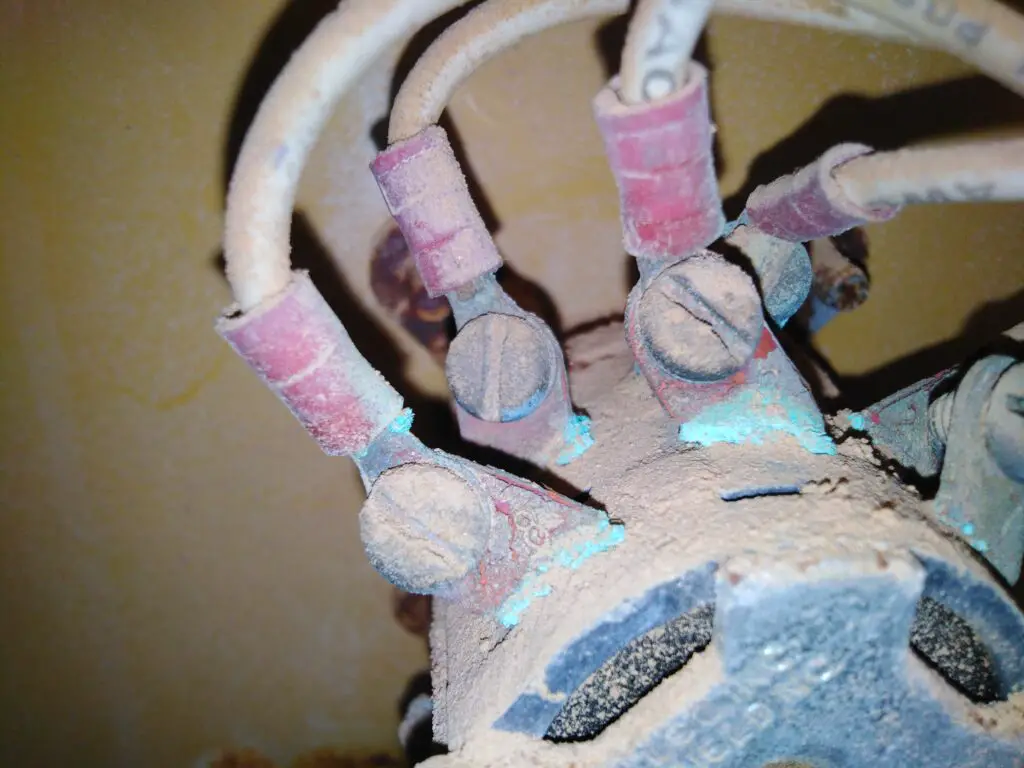Electricity is the most vital resource available to us in this modern world. It doesn’t matter what type of business you own; electricity will likely be integral to your day-to-day business.
Every industry or business owner should ensure that their electrical systems are maintained, secure, and reliable.
Electrical Engineers/Experts suggest having regular electrical inspections and maintenance carried out to keep your electrical systems in good working order.
Table of Contents
Why is electrical maintenance important?
Electrical maintenance is crucial for ensuring the reliable and safe operation of electrical systems. Here are five advantages of implementing regular electrical maintenance:
- Enhanced Safety:
- Regular maintenance helps identify and address potential electrical hazards such as faulty wiring, loose connections, or damaged components. This proactive approach reduces the risk of electrical accidents, such as electrical shocks, fires, or equipment failures, promoting a safer working environment.
- Reduced Downtime:
- Scheduled electrical maintenance helps identify and address issues before they escalate into major problems. By proactively addressing issues, the likelihood of unexpected breakdowns and downtime is reduced. This is particularly important in industrial settings where downtime can result in significant financial losses.
- Improved Equipment Performance:
- Electrical equipment that undergoes regular maintenance tends to operate more efficiently and reliably. Cleaning, calibration, and replacement of worn-out parts during maintenance can optimize the performance of electrical systems, ensuring that they function at their best capacity.
- Extended Equipment Lifespan:
- Regular maintenance helps prevent premature wear and tear of electrical equipment. By addressing issues promptly and replacing components as needed, the overall lifespan of electrical systems and equipment can be extended. This can result in cost savings by reducing the frequency of equipment replacements.
- Energy Efficiency:
- Well-maintained electrical systems are more likely to operate efficiently. Regular inspections and adjustments can identify energy wastage, such as power leaks or inefficient components. By addressing these issues, electrical maintenance contributes to improved energy efficiency, which is not only environmentally responsible but also can lead to cost savings over time.
In summary, electrical maintenance is essential for promoting safety, minimizing downtime, optimizing performance, extending equipment lifespan, and enhancing energy efficiency in various applications and industries.
Why is electrical maintenance important for transformers?
Electric transformers are a costly and crucial component of any factory/industry. One transformer fault may cost the organization all the production lines.
In my work, Oil and Gas company, transformers feed oil and gas wells, if we lose a transformer it costs a lot of money and production.
For the best performance and longer product lifespan, we perform regular maintenance checks on transformers.
There are two kinds of maintenance for transformers. The first is performed regularly, and the other is carried out in an emergency and faults conditions, of course, you shouldn’t reach a failure point.
If maintenance checks are conducted regularly, you may not have to go break down maintenance and save time.
The key difference between preventive maintenance and fault condition one is the control you have on maintenance time, duration, and preparing spare parts.
Many people think having no moving parts means that there is nothing to happen to electrical systems.
Experts from the Institute of Electrical and Electronics Engineers (IEEE) state that the failure rate for electronic components can be three times greater when systems are not maintained with preventive programs.
why maintenance of electrical installation is important?

Prevention-based maintenance isn’t something new. People have been performing preventive maintenance on engines, motors, and mechanical systems for a long time.
When we propose preventative repairs to electrical distribution networks, we often get stunned looks and the constant questions, “What for? Nothing moves -what could go wrong?”
If the electrical distribution system is not adequately maintained, various issues can arise. Fluctuations in electrical loads, ranging from low to high demand, can lead to the expansion and contraction of temperatures, resulting in loose connections.
Furthermore, neglected electrical panels accumulate dirt and dust on connection terminals.
The combination of dirty and loose connections creates a high-resistance route, directly contributing to over 30% of electrical breakdowns.
Moisture, accounting for 17% of electrical malfunctions, affects electrical components. Implementing preventive electrical maintenance is a proactive measure to avert potential issues and mitigate the escalation of existing problems.
By investing in regular maintenance, you not only prevent costly future problems but also address current issues more affordably.
Additionally, the energy costs associated with electrical systems can be significantly reduced through routine maintenance, leading to decreased energy bills.
Why Should You make electrical maintenance on time?
Electrical maintenance is crucial for several reasons, and performing it on time helps ensure the safety, reliability, and efficiency of electrical systems. Here are some key reasons why timely electrical maintenance is important:
- Safety: Faulty electrical systems can pose significant safety hazards, including the risk of electric shocks, fires, and other accidents. Regular maintenance helps identify and address potential issues before they become serious safety concerns.
- Reliability: Electrical systems that undergo regular maintenance are more reliable. This helps prevent unexpected breakdowns and downtime, especially in critical environments such as industrial facilities, hospitals, and data centers. Unplanned downtime can result in significant financial losses and operational disruptions.
- Compliance: Many industries are subject to regulatory standards and codes related to electrical safety. Regular maintenance ensures that electrical systems comply with these standards, reducing the risk of regulatory fines and legal issues.
- Energy Efficiency: Well-maintained electrical equipment operates more efficiently. By addressing issues like loose connections, worn-out components, or inefficient devices, you can optimize energy consumption, leading to cost savings and reduced environmental impact.
- Equipment Longevity: Timely maintenance helps extend the lifespan of electrical equipment. It prevents premature wear and tear, corrosion, and other factors that can lead to equipment failure. This, in turn, reduces the need for frequent replacements and capital expenditures.
- Early Detection of Issues: Regular inspections and maintenance allow technicians to identify and address potential problems early on. This proactive approach can prevent minor issues from escalating into major and costly repairs.
- Cost Savings: Investing in preventive maintenance is often more cost-effective than dealing with emergency repairs or equipment replacements. It helps control operational costs, reduces the likelihood of major failures, and minimizes the impact on productivity.
- Insurance Requirements: Some insurance policies may require regular electrical maintenance to maintain coverage. Failing to adhere to these requirements may result in increased premiums or a denial of coverage in case of a claim.
- Operational Continuity: In businesses and industries where continuous operation is critical, such as manufacturing or healthcare, electrical maintenance is essential to ensure uninterrupted functionality. This contributes to business continuity and customer satisfaction.
- Documentation and Record-Keeping: Keeping a record of maintenance activities provides valuable documentation for auditing purposes, equipment history, and compliance with industry standards. It also facilitates troubleshooting and planning for future upgrades or replacements.
In summary, timely electrical maintenance is essential for promoting safety, reliability, compliance, and efficiency in electrical systems, contributing to the overall success and sustainability of various industries and applications.
Don’t Leave Empty-Handed!
Install my Free Android App on Google Play:
Electrical Cables Most Common Tables “Cables Tables”
And, my Electrical Calculations App “Fast Electrical Calculator”
Discover more great content by subscribing to My channel
Looking to stay ahead of the game in the world of electrical engineering? Subscribe to my YouTube channel and gain access to exclusive content you won’t find anywhere else!
The staff I recommend
(Amazon Affiliate Links to products I believe are high quality):
- Economy 120 Volt/60Hz AC Power Source – Step-Down Voltage & Frequency Converters 1800W
- UNI-T Digital Multimeter Tester UT139C
- 50-Amp Extension Cord for RV “100ft”
- Voltage Stabilizer 110/220v
- Hair Dryer “best selling“
- TOSHIBA EM131A5C-BS Countertop Microwave Ovens
Disclaimer: This contains affiliate links to Amazon products. I may earn a commission for purchases made through these links.


